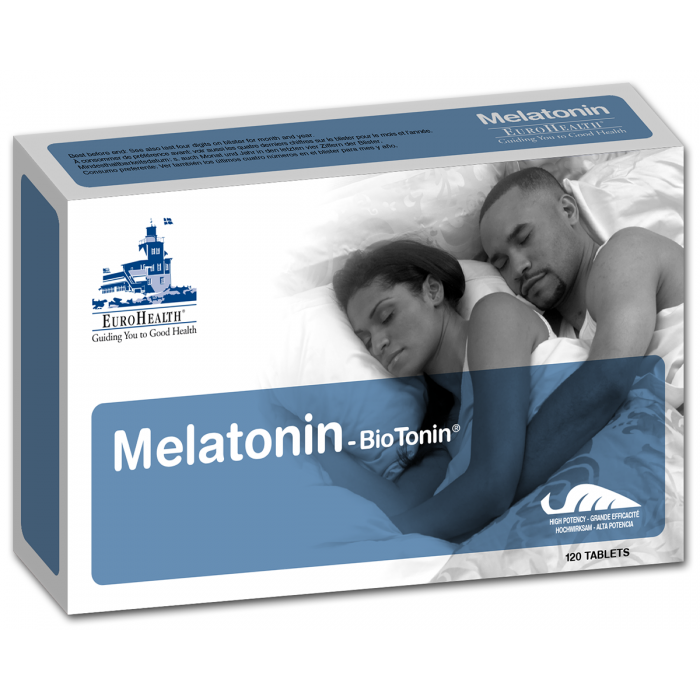We use cookies to make your experience better. To comply with the new e-Privacy directive, we need to ask for your consent to set the cookies. Learn more.
Melatonin - BioTonin sublingual 0.5mg
Melatonin - BioTonin®
120 tbs
Sleep well and wake up refreshed!
Melatonin is secreted from the pineal gland during nocturnal hours. Secretion decreases drastically with age.
What is Melatonin?
Melatonin is a hormone-like substance that is found in all forms of life on earth. In humans, it is produced mainly by the pineal gland, a gland about the size of a pea, which is located in the center of the brain, but also in the stomach and in the eye. The secretion of Melatonin occurs during the night, as a response to darkness, and it peaks in the middle of the night, and then gradually falls during the second half of the night. The synthesis and release of Melatonin is inhibited by light. For this reason Melatonin has also been called "the Hormone of Darkness". The secretion of Melatonin peaks in puberty, after which it rapidly decreases, and very often people over 50 secret only one tenth of the of the amount secreted in puberty.
About Melatonin
Melatonin is rapidly metabolized, chiefly in the liver and it is excreted in the urine. It is both a fat- and water- soluble hormone. The risk of overdosing Melatonin is therefore minimal.
Melatonin secretion declines with age. As we get older, the pineal gland rapidly wears out, due to an excessive buildup of calcium, which is known as calcification. The levels of Melatonin produced by the pineal gland are abundant in children, peak slightly before puberty, and decrease steadily thereafter into old age.
Supplemental Melatonin
Supplemental Melatonin must be synthetically produced. It is identical to the naturally occurring hormone and has many benefits. "Natural Melatonin" should be avoided at all costs as it may contain harmful impurities.
What is the Recommended Intake?
Melatonin researchers themselves have yet to determine the optimum doses for various usages/indications. Individual needs also vary depending on differences in metabolism.
Melatonin contributes to the reduction of time taken to fall asleep and an adequate dosage of 1mg taken close to bedtime.
Melatonin contributes to the alleviation of subjective feelings of jet lag with a minimum intake of 0.5mg to be taken close to bedtime on the first day of travel and on the following few days after arrival at the destination.
When should Melatonin be taken?
Always take Melatonin at night. Do not take Melatonin during the day unless advised by your health practitioner, or physician. Taking Melatonin during the day can have some unwanted effects, including resetting your body clock, giving you unintentional jet lag, or making you drowsy and increasing your risk of accidental injury.
| Quantity | 120 caps |
|---|---|
| Dosage | 0,5 mg - sublingual |
| Country of origin | Sweden |


